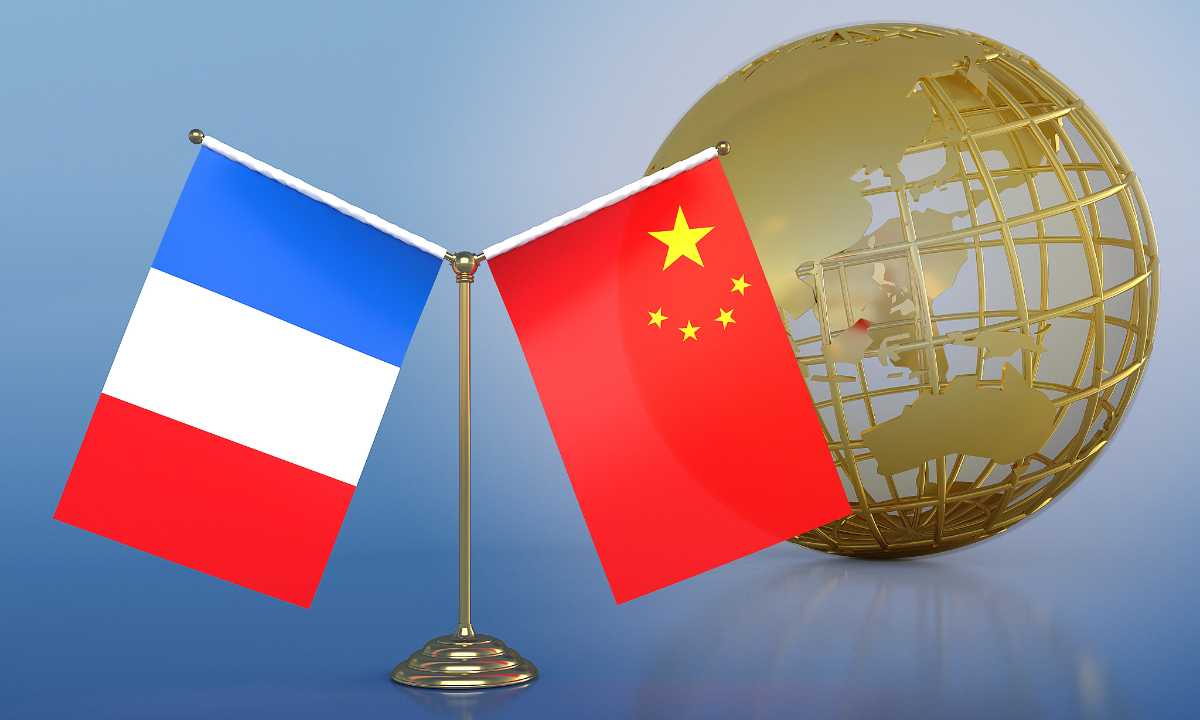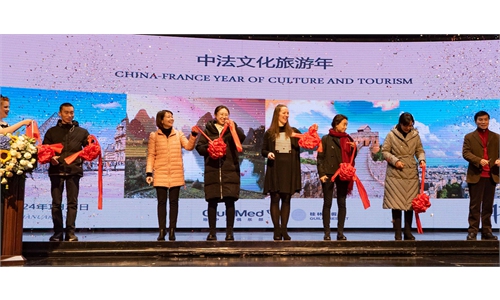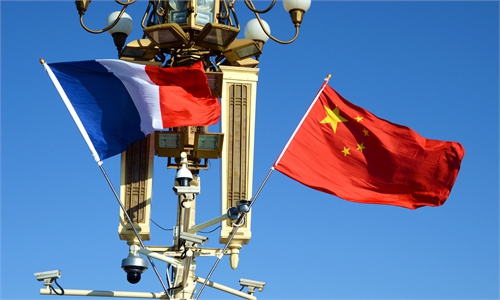Chinese Premier meets visiting French FM
'Lack of cooperation, lack of development pose the greatest risks'

China France Photo:VCG
Chinese Premier Li Qiang called for the building of a stable China-France relationship and jointly injecting more certainty into world development through multilateral cooperation as he met with visiting French Minister for Europe and Foreign Affairs Stephane Sejourne on Monday in Beijing.
Some Chinese experts said that Sejourne's visit, his first to China as French foreign minister, aims to pave the way for future high-level interactions between the leaders of the two countries. It also signals that China and France share more common strategic interests and can overcome some differences in cooperating on major issues of concerns such as the Ukraine crisis and the Palestine-Israel conflict.
China-France relations have long been at the forefront of China's relations with Western major powers, benefiting not only the peoples of both countries but also having a profound impact on the world, Li said on Monday.
The stability of China-France relations will promote better development for both countries, and by strengthening multilateral cooperation, both countries can inject more certainty into world development, Li said.
Li also noted that the Chinese and French economies have strong complementary advantages and many points of mutual interest. China has always regarded France as a priority cooperation partner and hopes that by continuing to deepen traditional cooperative relations, both countries can further tap into cooperation potentials in areas such as green energy, technology innovation, advanced manufacturing, artificial intelligence, digital economy, and better achieve mutual benefit and win-win outcomes, Li said.
We hope the French side can provide a business environment that is open, fair, and non-discriminatory for Chinese enterprises, while actively promoting the European side to follow economic rules and market principles, and properly resolve concerns of both sides through consultation, Li said.
"Lack of cooperation and lack of development pose the greatest risks," Li noted. He said China is willing to strengthen multilateral cooperation with the French side to make positive contributions to solving international hotspot issues and improving global governance.
This year is the 60th anniversary of the establishment of diplomatic relations between China and France, and also the Year of China-France Cultural and Tourism Exchange.
China and France are both great nations with a spirit of independence. The historical wealth of friendship between the two countries is something to be cherished, and the responsibilities and missions they share are undeniable, Chinese Foreign Minister Wang Yi said when meeting with Sejourne.
Both sides agree that under the leadership of their heads of state and taking the 60th anniversary of the establishment of diplomatic relations between China and France as an opportunity, they should closely communicate and coordinate, deepen exchanges and cooperation, and make China-France relations more strategically stable and forward-looking.
The two sides should continue communicating closely on major international and regional issues, deepen cooperation in traditional fields such as aerospace, nuclear energy, agriculture and finance, and actively explore cooperation in emerging fields such as green transformation and intelligent manufacturing, according to a readout from the Chinese Foreign Ministry.
"This visit by the French foreign minister also laid the groundwork for upcoming high-level visits," Wang Yiwei, director of the Institute of International Affairs at the Renmin University of China, told the Global Times on Monday.
The French side also hopes that China can undertake some positive coordination efforts on both the Russia-Ukraine and Israel-Palestine issues, the expert said.
"The Russia-Ukraine conflict has impacted France's status as a major power and the multipolar world. The conflict has led to France's increased dependence on the US, in terms of both security and energy. For France, ending and resolving the Russia-Ukraine conflict would reduce its dependence on the US," Song Luzheng, a Chinese scholar residing in France and a research fellow at the China Institute of Fudan University, told the Global Times on Monday.
Since the beginning of 2024, China-France and China-Europe exchanges have seen significant positive momentum. For example, China eased its unilateral visa-exemption policy for several European countries and Wang Yi's visit to Europe at the beginning of the year also sent out a positive signal.
Since the beginning of this year, exchanges at all levels between China and Europe have fully resumed, and cooperation in various fields has been comprehensively unfolded. There is an increasingly rational recognition of China in Europe, and the willingness to cooperate with China is strengthening, Wang Yi said on Monday.
"Facts have proven and will continue to prove that China is an opportunity, not a risk to Europe; a partner, not an adversary," the Chinese top diplomat said.
"From China's perspective, in the strategic competition with the US, we need Europe, and we need to engage with France," Song said. As France is a nuclear power and a permanent member of the United Nations Security Council, it plays a crucial role within the EU, he noted.
Despite the fact there are currently some trade frictions between China and Europe, such as those involving electric vehicles and brandy, some compromises can be reached, Wang Yiwei believes.
During the meeting between Chinese and French ministers, Wang Yi said China is also willing to import more high-quality French products and services, and create more convenience for enterprises from various countries including France to develop in China. We also believe that the French side will provide a fair, just, and predictable business environment for Chinese enterprises investing in France, he added.
"De-risking" should not target specific countries, should not violate WTO rules, and should not create negative expectations for the business community, Wang Yi said, noting that some insightful individuals in Europe are also reflecting on this, believing that decoupling from China is the real risk.




